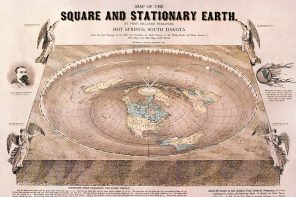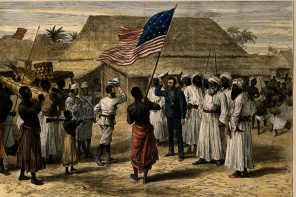Have humans stopped evolving?
Charles Darwin said the environment shapes us. And now we know the shaping happens via crosstalk with our genes. Genes respond to the environment, which ‘naturally selects’ the versions of the genes that work best in that environment, which in turn affects the genes, on and on across the generations.
So, have humans stopped evolving?
For a long time, the answer from most evolutionary biologists has been ‘yes.’ We all evolved in the same place, in the same environment, and in the last 50,000 years, natural selection has, as the renowned evolutionist Stephen Jay Gould put it, ‘become irrelevant’ for humans. Human innovation has excluded the environment as a driving force in our own evolution.
But what if the answer is actually no? The implications are big. And what if the answer is not only ‘no,’ but also ‘we’re evolving faster than ever, so fast that groups of humans, races if you will, are evolving away from each other.’ The implications are bigger.
What factors, after all, most dramatically affect, actually constitute the human environment? Our culture, our religion, and even our economy! What if, as suggested by futurist Paul Saffro, humans wealthy enough to select their own environment and their own genes and body parts (which, by the way, they can already do) might evolve into a separate superspecies? All this culture and ethics is scary territory for most biologists. And for good reason.
So, it’s probably more than just science that helps maintain the evolutionary biologists’ party line that ‘humans are all the same’ and ‘we’ve stopped evolving.’ After all, talk of differences evolving in different human groups evokes lurking dangers of eugenics: the twisted logic of racism, Nazism, The Bell Curve. In fact, according to very convincing evidence outlined in the recent Darwin’s Sacred Cause, his disgust for slavery was perhaps the driving force behind Darwin’s efforts to demonstrate evolution, with its underlying truth that humans are all one species with a common ancestor.
While in no way disputing that we all share a common ancestor in Africa, a group of scientists are saying, first, that we all agree that after our initial start in Africa (about 50,000 years ago), we all spread out around the world into very different environments, and second, that those different environments account not only for why we look different, but the different environments and separation from other groups also account for our different cultures and religions (i.e., new environments). New environments make for selection of different genes. This much no one argues with.
Different Cultures, Different Genes
But now, backed by new data, scientists ask controversial questions like this: could forcing Jews by law to do little but handle money for many, many generations in Europe have selected for the relatively common independent appearance of Tay-Sachs disease in that population? Geneticists have shown, most famously with sickle-cell disease and its co-occurrence of resistance to malaria, when a mutation occurs independently over evolutionary time in different populations, this usually means the mutation gives some advantage to organisms in a particular environment.
Tay-Sachs is a deadly disease if you have two mutant copies of the gene, but why would different versions of the mutant gene keep occurring independently in the same group, especially if it’s deadly when you get a mutant copy from both parents? Two of the scientists involved in this new humans-are-evolving-real-fast research (Henry Harpending and Gregory Cochran) hypothesize with strong, testable data that perhaps the mutant version of the gene allows brain neurons to grow in new ways that improve analytical ability, allowing the capacity for better math and money handling skills. Such ability would of course be selected for in centuries’-worth of banking environments.
See why this gets folks edgy? A human-created environment (culture) that affects one cultural/religous group (Jews) that might drive genetic change over a relatively short period of time.
Harpending, Cochran and others identify many such ‘recent’ genetic and phenotypic differences (aren’t black people, Asians, and Caucasians obviously different in physiology?). They claim, based on analysis of the enormous emerging databases of the genomic revolution, that human evolution is actually going faster, up to a hundred times faster, than before humans left Africa.
Why faster? Well, the scientists reason, not only have we dramatically changed environments from Africa to all corners of Earth, but there’s also vastly more of us, vastly more organisms on which evolution can work. Ten thousand years ago Earth hosted 10 million people; now it holds almost seven billion. So, the odds of any particular mutation occurring by chance is much greater. Once it pops up, if it gives an advantage, the mutation quickly moves through that one population.
Recent genetic analysis has determined that as much as 7% of our genome has evolved rapidly like this in the times since the great split up of humans from Africa 40-50,000 years ago. Dozens of such genes are hypothesized to be, like the Tay-Sachs gene, related to brain development.
Like I said, this stuff—the idea that different cultures have different versions of genes—is potentially disturbing, and likely accounts for some of the continued resistance to these claims from many quarters, including scientists. As important, many prominent scientists are also wary of the methods used in this relatively new field of genome evolution analysis, as well as the broad conclusions, like that of the Tay-Sachs hypothesis, which have not yet been experimentally demonstrated.
Personally, my bet is with the new data and interpretations. The intriguing part will be to see how these new data and ideas get integrated into our culture.




